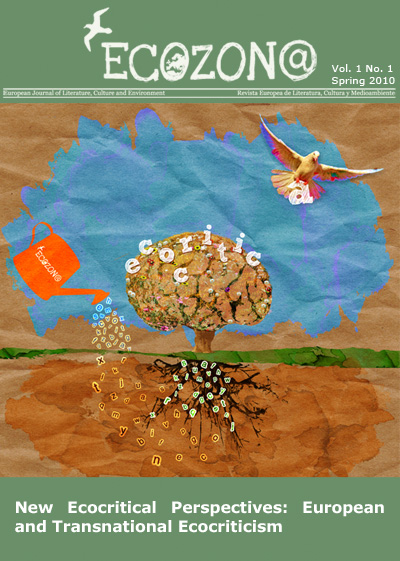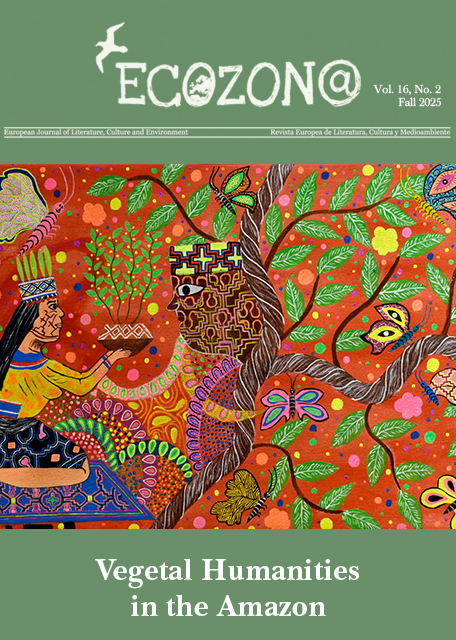European Ecocriticism: Negotiating the Challenges of Fragmentation?
DOI:
https://doi.org/10.37536/ECOZONA.2010.1.1.330Parole chiave:
European ecocriticism, Canadian ecological identity, federation, European nature, European identity, diversity, fragmentation, bioregional network, eco-comparatist, multilingual ecocriticismAbstract
Key words: European ecocriticism, Canadian ecological identity, federation, European nature, European identity, diversity, fragmentation, bioregional network, eco-comparatist, multilingual ecocriticism
European ecocriticism is distinguished from ‘ecocriticism made in USA’ by geo-physical fragmentation, the absence of shared encounters of the human with the non-human, and linguistic and political heterogeneity. There is no unitary continental consciousness. However, linguistic and cultural diversity can be an asset rather than a disadvantage, if it is allowed to steer European ecocriticism in a new direction. The European terrain invites ecocritics to become multilingual eco-comparatists, paying special attention to how linguistic representation aids and hampers environmental consciousness.
Palabras clave: eco crítica europea, identidad ecológica canadiense, federación, naturaleza europea, identidad europea, diversidad, fragmentación, red bioregional, eco-comparatista, eco crítica multilingüe.
La ecocrítica europea se distingue de la ecocrítica ‘made in USA’ por la fragmentación geofísica, la ausencia de encuentros compartidos de lo humano con lo no-humano y por la heterogeneidad lingüística y política. No hay una conciencia continental unitaria. Sin embargo, la diversidad cultural y lingüística puede ser una ventaja más que una desventaja si se la permite dirigir la ecocrítica europea en una nueva dirección. El terreno europeo invita a los ecocríticos a convertirse en eco-comparatistas multilingües, prestando especial atención a cómo la representación lingüística ayuda y obstaculiza a la conciencia medioambiental.
Downloads
##submission.downloads##
Fascicolo
Sezione
Licenza
Authors who publish with this journal agree to the following terms:
a) Authors retain copyright and grant the journal right of first publication with the work simultaneously licensed under a Creative Commons Attribution License that allows others to share the work with an acknowledgement of the work's authorship and initial publication in this journal (CC BY-NC for articles and CC BY-NC-ND for creative work, unless author requests otherwise.
b) Authors are able to enter into separate, additional contractual arrangements for the non-exclusive distribution of the journal's published version of the work (e.g., post it to an institutional repository or publish it in a book), with an acknowledgement of its initial publication in this journal.
c) Authors are permitted and encouraged to post their work online (e.g., in institutional repositories or on their website) prior to and during the submission process, as it can lead to productive exchanges, as well as earlier and greater citation of published work (See The Effect of Open Access).










